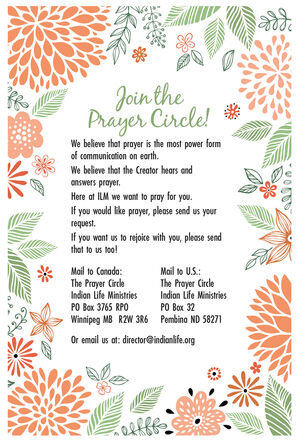Canadian Heritage launches engagement sessions on First Nations, Inuit and Métis languages
Last updated 7/16/2018 at 3:14pm

Assemblies of First Nations
Community-based engagement sessions will be held across Canada to support the co-development of First Nations, Inuit and Métis languages legislation.
GATINEAU, Quebec-In June, the Honourable Mélanie Joly, Minister of Canadian Heritage, launched the intensive community-based engagement sessions that will be held across Canada this summer to support the co-development of First Nations, Inuit and Métis languages legislation.
The intensive engagement sessions will build on the results of early engagement sessions that have taken place with First Nations, Inuit and Métis language practitioners and experts since June 2017, when Minister Joly; National Chief Perry Bellegarde of the Assembly of First Nations; Natan Obed, President of Inuit Tapiriit Kanatami; and Clément Chartier, President of the Métis National Council launched the co-development of First Nations, Inuit and Métis languages legislation, and agreed on a collaborative engagement approach.
The next phase of engagement will be conducted through "workout" sessions convened with Indigenous Peoples throughout Canada, in addition to providing an opportunity to submit feedback through online questions and written and electronic comments.
The input gathered during the summer will inform the drafting of the legislation. The intent is to introduce the legislation in the current parliamentary session.
This is part of the federal government's effort to help preserve, promote and revitalize First Nations, Inuit and Métis languages.
Over two-thirds of the 90 Indigenous languages still spoken in Canada are "endangered" according to UNESCO's endangered languages criteria; the remaining third are defined as "vulnerable."
The overall number of speakers is decreasing. In 2011, only about 14.5 percent of the Indigenous population reported an Indigenous mother tongue, with about 7 percent no longer able to conduct a conversation in their mother tongue. In 2011, about 17 percent of Indigenous people could converse in an Indigenous language, down from 21 percent in 2006. Indigenous language usage varies significantly among First Nations, Inuit and Métis populations. The proportion of speakers for First Nations languages is one in five, for Inuit is two in three, and for Métis is fewer than three in 100.
"The voices of First Nations people, elders, experts, Knowledge Keepers and language speakers must be heard and included in the work towards an Indigenous Languages Act," says Joly. "The AFN has reached out to First Nations through their own approach and now Canada must do its part. These are our languages, central to who we are and all we do, and we must make every effort to keep them alive and thriving for generations to come."
"We look forward to engaging our communities to help us define how we go about protecting and promoting the use of our Michif language," says Clément Chartier, President, Métís Nation. "It is at the community level that we always get best insight into what is needed to support the cultural development of the Métis Nation."






